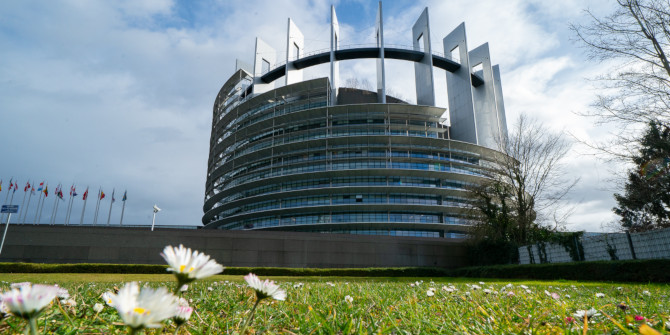The UK’s exit from the European Union resulted in important changes to the residence and employment rights of many British-European families. Drawing on new survey research, Elena Zambelli, Michaela Benson and Nando Sigona explain how these changes affected people living across Europe.
What has Brexit and the removal of freedom of movement provisions meant for British-European families? Three years on from the end of the transition period, the effects of Brexit for such families remain unresolved and largely unconsidered.
In a new study, we highlight the emergent constraints and challenges faced by these so-called “Brexit families”. Such families previously enjoyed status equality grounded in EU freedom of movement legislation. Yet, Brexit introduced status differences in the country of residence for many such families on both sides of the Channel, remaking these previously European families as “mixed-status” families.
Drawing from the results of a survey, we reveal the consequences of Brexit for these families. We draw particular attention to how this shift in status within families has impacted on the opportunities for mobility, with implications for their decision-making about where to live now and in the future.
For those who participated in our research, this shift was felt across the family unit, as new compromises were brokered in efforts to balance members’ competing views, interests and aspirations about where they might live. In what follows, we trace some of the ways that families approached this, from those keeping their options open, to those with no choice but to wait anxiously, to its lasting consequences.
Keeping options open
Giacomo, a dual Italian-Jamaican national living in the UK and married to a British woman told us how Brexit made him no longer feel welcome in the UK, and he wished to leave the country as soon as possible. Yet, he also told us that, in the process of checking their daughters’ identity documents, they found out that one of their daughters had not automatically inherited her mother’s British citizenship, due to limitations contained in British nationality law (the mother was born overseas).
Therefore, were they to leave the UK there and then, in the future, their daughter’s return to the UK for study or work reasons would have taken place under its strict immigration laws and visa regime. To keep her future educational and professional options as open as possible, Giacomo and his wife decided to postpone their exit and stay a few years more, until they could secure their daughter’s British citizenship.
An anxious wait
For other survey participants, waiting was less of a rational choice and more of an anxious wait over which they had little control. Lisa, a British woman married to an Italian man, told us that they left Italy for the UK just days before the end of the transition period, with the sole objective of securing EU pre-settled status for him and his right to “live and work freely in the same country as me and my daughter” (both UK citizens).
Shortly afterwards, the COVID-19 pandemic started and as her husband could not find any work, he went back to his previous job in Italy. When the economic situation in the UK got better, he returned. At the time of the survey, however, Lisa said that they were very worried that his prolonged physical absence from the UK may have jeopardised his transition from pre-settled to settled status, leaving Italy as the only country where they could continue living together as a family.
Lasting consequences
Other survey respondents similarly told us that they successfully managed to move to the country where they wished to live before the new migration and settlement rules kicked in. Yet, through their words, there often filtered some mourning for the mobility they no longer enjoyed, and for their current feeling of being “stuck”.
For example, Harry, a British citizen, told us with evident relief that, since he and his wife (a Belgian citizen) had moved back to Belgium in time, he did not have to struggle to secure his residence rights in a country where he had never lived before. However, he also lamented their loss of “the right to migrate as a family” back to the UK, since the country’s family reunification requirements would have been prohibitively expensive to them.
Overall, our research shows how changes in legal status have been keenly felt by Brexit families through their considerations over their future migration, settlement and return plans. Among the approaches they described were decisions to abandon, delay or put on hold previously held plans. What is clear is that the longer tail of Brexit for such families is likely to reverberate for years to come as they act upon these plans and the others now out of reach.
For more information, see the authors’ accompanying article in Sociology. This research also features in a recent episode of the Who do we think we are? podcast. The article draws on findings from the ESRC-funded project Rebordering Britain and Britons after Brexit (ES/V004530/1).
Note: This article gives the views of the authors, not the position of EUROPP – European Politics and Policy or the London School of Economics. Featured image credit: Marcin Rogozinski/Shutterstock.com






“Brexit made him no longer feel welcome in the UK”
“Lisa said that they were very worried..”
Those are nebulous “feelings” – by a handful of individuals.
Could they be because scare-mongering was rife amongst EU hard-liners – when they manufactured “worries” about the future for 3,000,000 EU citizens in the UK….
…that turned out to be more like 6,000,000 who got Settled Status ?
Quite why anyone should feel they have an automatic “right” to live in another country is a mystery.
As an English speaker, I could imagine living in Australia, USA, or Canada….
….but would never expect to settle without at least some formalities.
But this article is an “appeal to emotion” by using a handful of named people….
….while the UK is receiving a Net influx of 1,000,000 extra people every 2 to 4 years.
Some 65,000,000 plus UK people would like to know when the flood of new arrivals will stop…
…so allowing housing costs to stabilise….
…and infrastructure to catch up ?